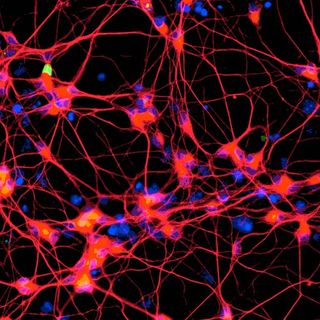
IBM’s Watson for Cancer Care Said to Have Recommended Unsafe Treatments
The artificial intelligence system, used in some Indian hospitals, can’t replace doctors just yet.

Last year, in an interview with CNBC, Ginni Rometty, the CEO of IBM claimed the company’s artificial intelligence software — dubbed ‘Watson’ — would by 2018 “be able to address, diagnose, and treat 80 percent of what causes 80 percent of the cancer in the world.” She was referring to Watson for Oncology, which according to an IBM spokesperson, is currently being used in 230 hospitals around the world to help treat 13 of the most common cancers. In India, Apollo Hospitals and Manipal Hospitals have adopted the technology in cancer units across many metros.
Last week, STAT News reported Watson for Oncology had multiple allegations of unsafe treatment recommendations at the time of the interview.
STAT reviewed two internal documents that were shared with IBM Watson Health management in June and July 2017, prior to Rometty’s interview. The documents contained strong criticism of the AI system from doctor-users, and statements that say the inaccuracy of Watson’s recommendations raise “serious questions about the process for building content and the underlying technology.”
More bluntly, “This product is a piece of shit,” said one user-doctor in the US, according to the documents. “We can’t use it for most cases.”
The reports cite, as an example, the case of a 65-year-old man diagnosed with lung cancer, who also happened to be heavily bleeding. According to reports, Watson suggested the man be given both chemotherapy as well as the drug Bevacizumab — even though the medication’s label warns a side effect may be “severe or fatal hemorrhage.” — and hence should not to be given to someone who is bleeding heavily already, notes STAT.
A spokesperson from Memorial Sloan Kettering Cancer Center told STAT this was a test scenario, and no real person was given life-threatening treatment based on Watson’s recommendation.
That it was a test scenario is the problem, according to IBM. IBM says Memorial Sloan Kettering doctors who partnered with IBM in 2012 to develop the AI’s intelligence — to “train Watson to ‘think’ more like a doctor,” explains Gizmodo — imbued Watson with hypothetical cases, as well as their own treatment biases, rather than with real patient data.
IBM took issue with the STAT report, calling it “…not an accurate or timely representation.” The company points to 11 software updates since the date of the documents.
Be that as it may, it is clear that Watson is still far from achieving the public health care promises made last year by IBM. It is also far from being “highly reliable [than] four oncologists put together,” which is how the technology is advertised in a life-or-death-tinged video on Manipal Hospitals’ dedicated Watson for Oncology site.
“While Watson for Oncology provides safe treatment options, treatment decisions ultimately require the involvement and clinical judgement of the treating physician,” a Memorial Sloan Kettering spokesperson told STAT. “No technology can replace a doctor and his or her knowledge about their individual patient.”
Related


1 in 8 Children in India Has a Neurodevelopmental Disorder
